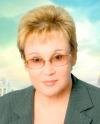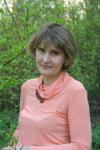1. Federal'nyj zakon "Ob obrazovanii v Rossijskoj Federacii" N 273-FZ ot 29.12.2012 (redakcija ot 23.07.2013)
2. Koncepcija dolgosrochnogo social'no-jekonomicheskogo razvitija Rossijskoj Federacii na period do 2020 goda, utverzhdennaja Rasporjazheniem Pravitel'stva Rossijskoj Federacii № 1662-r ot 17 nojabrja 2008 goda
3. Chistjakov I. A. Koncepcija obuchenija i jeksperimental'nye programmy akademicheskogo klassa Anichkova liceja s profil'no-jelitarnym standartom obuchenija po matematike i fizike. Sankt-Peterburg - Izdatel'stvo SPBGDTJu, 1998.
4. Chistjakov I.A. , Shtukenberg D.G., Mihajlov V.D. «Koncepcija obuchenija i programmy predprofil'nogo i profil'nogo obuchenija. Specializacija — matematika».- Sankt-Peterburg, 2008.
5. Novikov D.A., Glotova N.P. Modeli i mehanizmy upravlenija obrazovatel'nymi setjami i kompleksami. - M. Institut upravlenija obrazovaniem RAO, 2004 god. URL: http://www.methodolog.ru/books/mmuok.pdf (Accessed on 8 July 2015).
6. Chistjakova M. «Sovremennye form organizacii dopolnitel'nogo matematicheskogo obrazovanija»// «Spravochnik zamestitelja direktora shkoly», 2014, № 2. URL: www.menobr.ru/products/1666/ (Accessed on 7 July 2015).
7. Chistjakov I.A. Gosudarstvenno-chastnoe partnerstvo v oblasti obshhego i dopolnitel'nogo obrazovanija //Direktor ssuza, ijun'-ijul' 2014 goda, URL: http://directorssuza.ru/index.php/2014-03-22-16-03-19/9-issues/51-june2014 (Accessed on 7 July 2015).
8. Chistjakov I.A «Koncepcija vzaimosvjazi i integracii obshhego, dopolnitel'nogo obrazovanija i nauchnoj dejatel'nosti v oblasti matematiki i estestvennyh nauk (na primere gosudarstvenno-chastnogo partnerstva, osushhestvljaemogo ChOU OiDO «Laboratorija nepreryvnogo matematicheskogo obrazovanija» s gosudarstvennymi shkolami Sankt-Peterburga)» URL: http://lnmo.ru/images/oficial/kontsepsiya_lnmo_chistiakov_2015.pdf (Accessed on 7 July 2015).













